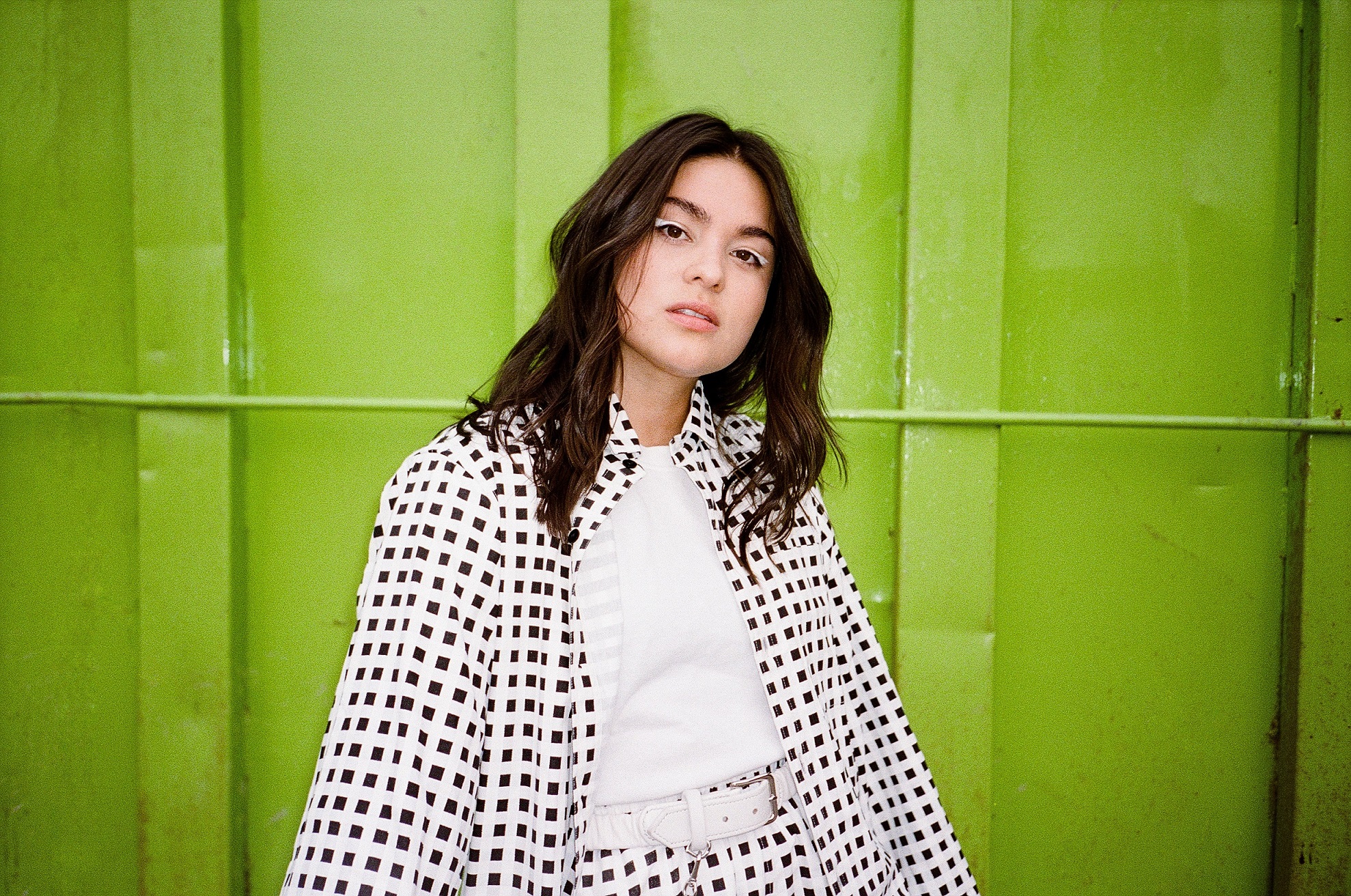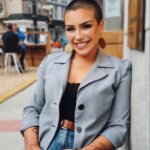I have rarely been so excited for a TV series as I am for the highly anticipated Reservation Dogs, which debuted on Hulu/FX this week.
Created, written and produced in partnership with Taika Waititi (of Thor: Ragnarok and Jojo Rabbit fame) and Sterlin Harjo, known for Barking Water and This May Be the Last Time, Reservation Dogs is a comedy series following four Indigenous youth on their journey to get from the Oklahoma Rez (the inter-community colloquial term for “reservation” or “reserve”) to California. As a former Rez kid myself, this is a story I could have only dreamed of watching growing up—a screen full of brown faces, with experiences and stories so reminiscent of my own, made by some of Hollywood’s most prominent talents.
Reservation Dogs is momentous for more than just its Indigenous representation, though. Indeed, in every level of production and performance, this series is chock-full of queer voices—including the prominent queer Indigenous artist and activist Devery Jacobs. A well-known face in Indigenous circles from Kahnawà:ke Mohawk Territory, she has appeared in television series like Rutherford Falls, American Gods and The Order, as well as the films We Burn Like This and Rustic Oracle. In Reservation Dogs, she plays Elora Danan, the moral centre and linchpin of the group. In a recent conversation, I was lucky enough to chat and laugh with Devery about this project, dissect Indigenous and queer representation in the media and reflect on her incredible career thus far.
The last few years seem to have been pretty wild for you, even during this pandemic. So many projects. I see you online everywhere! Congratulations.
I certainly wasn’t anticipating the year of the pandemic to be my busiest year as an actor, but I feel really grateful and excited to release all of the projects I’ve been a part of. We shot the pilot of Reservation Dogs in August 2020, which was my first project back from COVID-19 times. A lot of Nations and Tribes from Oklahoma were vaccinating all members of the public, so basically our entire cast and crew were able to be vaccinated.
That’s incredible. It’s so nice to hear all of you folks were so safe and cared for. Speaking of the cast and crew, I have heard there was a lot of queer representation on the set of Reservation Dogs. Did you find that?
Definitely. Throughout the making of Reservation Dogs, there were so many queer Indigenous creatives involved. From the very beginning in the writer’s room, there were writers like Tommy Pico, a queer Indigenous poet. We had Sydney Freeland, a legendary trans Navajo filmmaker, direct a couple of episodes. We’ve also been fortunate enough to introduce non-binary Ponka actor Elva Guerra, who plays the role of Jackie; this was not only the first role they ever booked, but the first project they ever auditioned for. They are such a strong presence, and I’m really excited for the world to be introduced to them.
Wow, that’s really amazing. The influence of queer talent on this project must have been tremendous. That feels very important.
Absolutely! And I mean, I’m queer. I had a strong role in creating and bringing my character Elora to life. Reservation Dogs is about Indigenous youth in this community—we shot near Tulsa, where there was a study that said many youth (Gen Z) don’t identify as straight. So there is a large queer presence and reality we were speaking to. I am also just such a sucker for queer content. There is such a need for it. Indigenous youth who are a part of the queer community have the highest rates of everything: suicide, homelessness, etc. So I certainly understand the importance of having positive queer Indigenous representation out there. I’m hoping we will see even more of it in season two of the series.
This hits home, for sure. A little while back, I put a call-out online seeing if folks had any knowledge of queer, Indigenous and femme representation in media. I could not think of a single example from when I was growing up. I got very few responses and it drove home what a massive gap there is. How does that feel for you, being a queer Indigenous person in media, to be one of only a few in the spaces where those identities and perspectives are so desperately needed?
Sometimes it feels a bit lonely—especially when I’m working on projects where I’m either the only queer person working with straight people, or I’m the only Indigenous person for miles. That has been so much of my career, and it’s been lonely and exhausting. So that’s why, to step on a set like Reservation Dogs where it really felt like it was our space, it was monumental. I was like, “This is what I’ve been looking for.” And this is why I haven’t felt the same type of connection in other projects, because I haven’t been making it with my community.
Oh, I get shivers when you talk about it. So good! I watched the trailer with my partner, who is non-Indigenous and hasn’t been to the Rez yet, but is also pumped to watch this. I was pointing out how the language being used and the “isms” were just so native and perfect; the accents, the way people laugh, how blunt Rez kids can be, all of it. It’s impressive how by-and-for Indigenous people it feels, yet it is still so accessible for non-Indigenous folks.
It is absolutely by and for Indigenous people. So firstly, I have always been a massive fan of Taika Waititi. His 2010 film, Boy, is one of my favourites of all time. He and his work have always been up on my vision board, so my partner jokes I have some Mohawk magic or did something to manifest being a part of Reservation Dogs. It is the Muskogee Cree-Seminole version of Boy: light-hearted, playful, dealing with serious issues that affect our communities, but a comedy first and foremost. Taika was the person who opened the door for us to create this show, but Sterlin Harjo, the other showrunner, created this story so that it is truthful to an Indigenous experience while also being so resonant with all people, including non-Indigenous people. Some of my very favourite projects and ones I connect with most are those from other cultures. For example, Moonlight and Minari are stories that focus on communities different from my own but speak to universal experiences of love and family, and I think this show does something similar.
The fact that it is a comedy first and foremost, as you say, is so perfect to me. I feel like so many queer and Indigenous stories get reduced to tragedies, and we miss out on the incredible humour and joy we hold. Humour, especially, has been such a powerful tool of reclamation and healing for both Indigenous and queer communities.
Oh my gosh, yes! Weaving whatever adversity and heartbreak are dealt to us and turning it into comedy gold—it’s a signature of Indigenous and queer communities alike.
The last thing I’ll say is when I think about Taika’s speech at the Oscars when he won for Jojo Rabbit, and he said, “We are the original storytellers.” That had me sobbing. Indigenous stories offer us so much. Similarly, I also think about how queerness has offered the world so much. So many of the greatest creatives come from our communities. I just think it’s such a beautiful blend of the two, and I am so happy to see it here. What do you think comes next?
One project I’m excited to see through is called This Place, which I’ve co-written and acted in. It combines my lived experience with that of my co-writers. In it, I play a half-Mohawk, half-Iranian woman who leaves her community to try and find her Iranian father who doesn’t know she exists. On the way, she ends up falling for a woman named Maile. It talks about Indigeneity, refugee experiences, queerness and family. It’s just this really lovely low-key queer love story. I’m so excited about it.
I will definitely be looking out for that. Thank you for your queer Indigenous storytelling and chatting with me today! Miigwetch.
Reservation Dogs debuts this week and streams on Hulu in the United States. This Place will premiere later this year.
Want more Devery Jacobs? Xtra talked to her about intersectionality in film


 Why you can trust Xtra
Why you can trust Xtra


